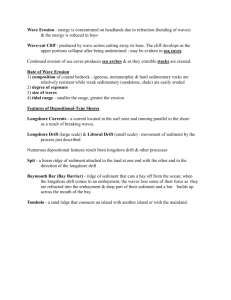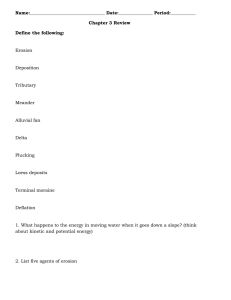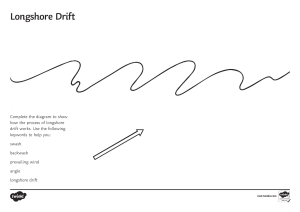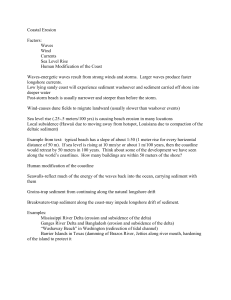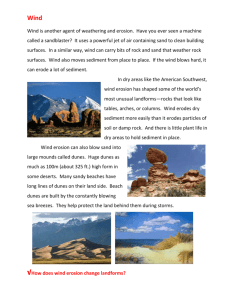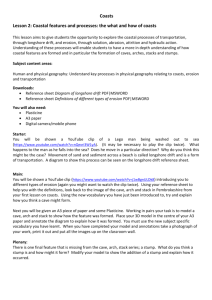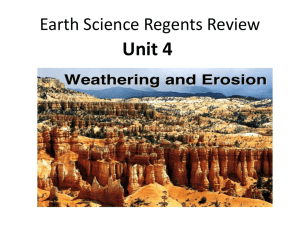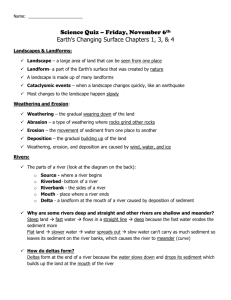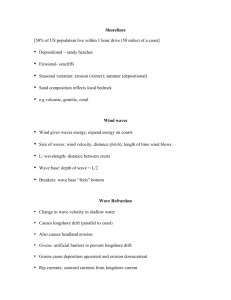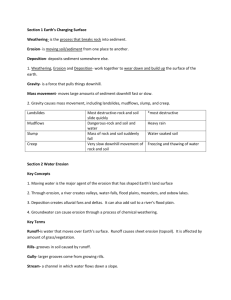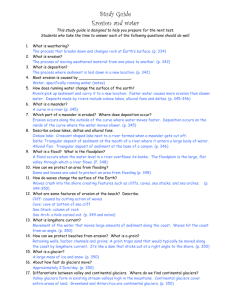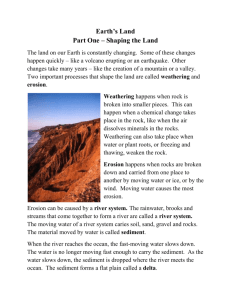Erosion and Deposition Study Guide
advertisement
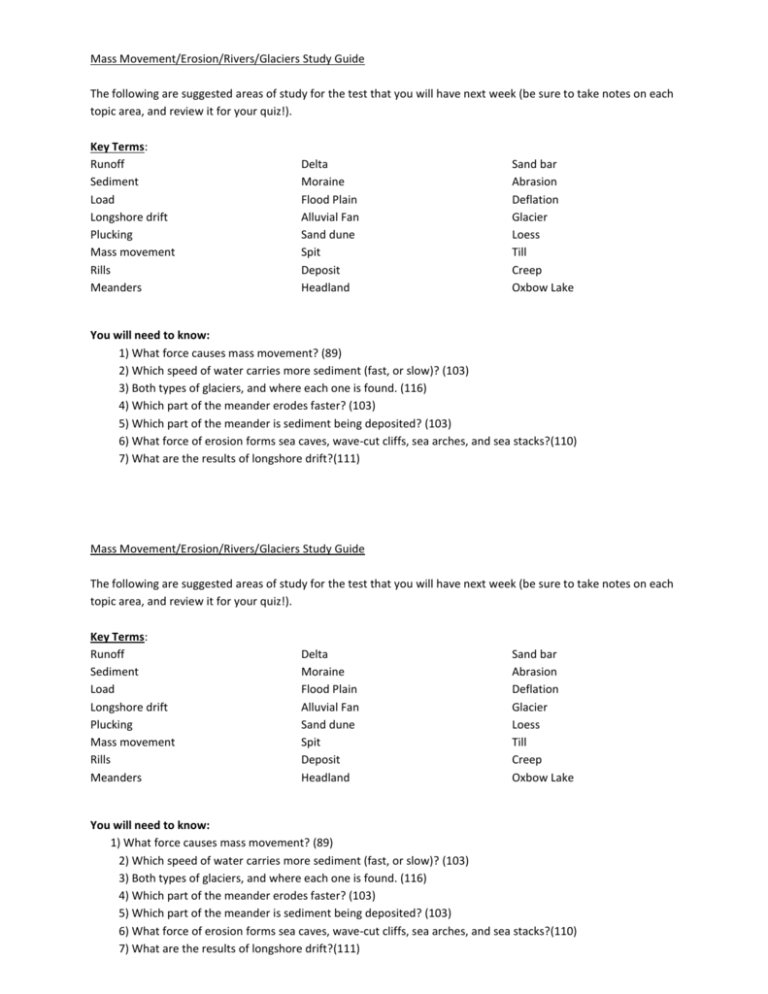
Mass Movement/Erosion/Rivers/Glaciers Study Guide The following are suggested areas of study for the test that you will have next week (be sure to take notes on each topic area, and review it for your quiz!). Key Terms: Runoff Sediment Load Longshore drift Plucking Mass movement Rills Meanders Delta Moraine Flood Plain Alluvial Fan Sand dune Spit Deposit Headland Sand bar Abrasion Deflation Glacier Loess Till Creep Oxbow Lake You will need to know: 1) What force causes mass movement? (89) 2) Which speed of water carries more sediment (fast, or slow)? (103) 3) Both types of glaciers, and where each one is found. (116) 4) Which part of the meander erodes faster? (103) 5) Which part of the meander is sediment being deposited? (103) 6) What force of erosion forms sea caves, wave-cut cliffs, sea arches, and sea stacks?(110) 7) What are the results of longshore drift?(111) Mass Movement/Erosion/Rivers/Glaciers Study Guide The following are suggested areas of study for the test that you will have next week (be sure to take notes on each topic area, and review it for your quiz!). Key Terms: Runoff Sediment Load Longshore drift Plucking Mass movement Rills Meanders Delta Moraine Flood Plain Alluvial Fan Sand dune Spit Deposit Headland Sand bar Abrasion Deflation Glacier Loess Till Creep Oxbow Lake You will need to know: 1) What force causes mass movement? (89) 2) Which speed of water carries more sediment (fast, or slow)? (103) 3) Both types of glaciers, and where each one is found. (116) 4) Which part of the meander erodes faster? (103) 5) Which part of the meander is sediment being deposited? (103) 6) What force of erosion forms sea caves, wave-cut cliffs, sea arches, and sea stacks?(110) 7) What are the results of longshore drift?(111)
